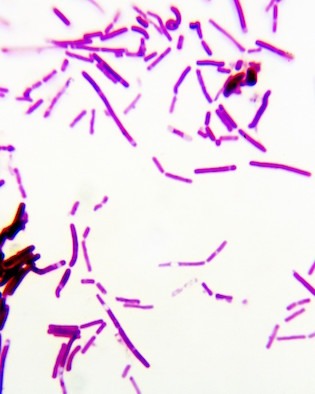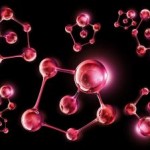The Role of Probiotics in Cancer
September 14, 2012 | Author: Susan Silberstein PhD
Most of us know that probiotics are the friendly bacteria that populate our intestines. Probiotics can help improve digestion and elimination, and protect our gut from invasion by undesirable pathogenic micro-organisms. Probiotics also help the immune system function at full capacity (70% of the immune system lies in the gut).
Scientists are now learning how life-saving probiotics can be (the term literally means ‘for life’), especially in the cancer field. They suspect that one of the reasons that susceptibility to cancer of the colon and bladder increases with age is linked to a drop in probiotic levels in the body. Taking high dose probiotic supplements may help fight cancer by:
- Detoxifying potential colon carcinogens (J. Dairy Sci. 79:745)
- Decreasing recurrence of bladder tumors (Eur. Urol. 27:104)
- Eliminating aflatoxin, a common carcinogen found in peanuts (Food Prot. 63:1133)
- Enhancing elimination of environmental toxins from the large bowel
- Enhancing immune cell activity (Carcinogenesis 18:517)
For example, Japanese studies found that giving people with bladder cancer high doses of probiotics can double the time until recurrence (Urol. Int. 1992:49(3):125). In a follow-up study, it was also discovered that the tumors that did recur were less aggressive and took longer to grow (Eur. Urol. 27(2):104). Scientists concluded that “The potential of probiotics to reduce the recurrence rate of bladder cancer is one of the most intriguing examples for the use of probiotics in medical practice” (Eur. Urol. 2005 Mar:47(3):288).
 Probiotics may also reduce risk or progression of other malignancies. For example, by preventing aflatoxin from mutating liver DNA , probiotics help reduce risk of liver cancer (Am. J. Clin. Nutr. 2006 (83):1199). In a study of people who were treated for colon cancer or who had intestinal polyps removed, researchers found that taking probiotics along with pre-biotics (a special oligosaccharide fiber that nourishes the healthy intestinal bacteria), cancer risk or risk of recurrence decreased. The combination of probiotics and prebiotics (called synbiotics) was shown to improve immune response and reduced cellular DNA damage that leads to cancer.
Probiotics may also reduce risk or progression of other malignancies. For example, by preventing aflatoxin from mutating liver DNA , probiotics help reduce risk of liver cancer (Am. J. Clin. Nutr. 2006 (83):1199). In a study of people who were treated for colon cancer or who had intestinal polyps removed, researchers found that taking probiotics along with pre-biotics (a special oligosaccharide fiber that nourishes the healthy intestinal bacteria), cancer risk or risk of recurrence decreased. The combination of probiotics and prebiotics (called synbiotics) was shown to improve immune response and reduced cellular DNA damage that leads to cancer.
In a review of two dozen studies examining the role of synbiotics in colon cancer (Br. J. Nutr. 2005 Apr; 93, Suppl I: S73), researchers found strong evidence of inhibited cancer cell growth, improved differentiation (poor differentiation is associated with increased malignancy), and reduced metastasis. Synbiotics also improve apoptosis (programmed cancer cell suicide) and increase production of agents like butyrate that deactivate bowel toxins. The scientists concluded that synbiotics present a promising way to fight tumors, especially for their “capacity to protect against colorectal cancer” (J. Nutr. 2005:May:135(5):996).

Probiotics are found in foods such as yogurt, miso, sauerkraut, pickles, artichokes, oats, and honey. They can also be purchased in isolated supplement form. When choosing a probiotic supplement, make sure you choose a product that has 30 billion microorganisms and combines multiple strains, including lactobaccili and bifidobacteria. Whether or not conventional therapy is administered, at BeatCancer.org we help patients every day with practical suggestions on how to optimize immune system performance and prevent disease recurrence. To take advantage of our individualized telephone counseling services (always offered on a donation basis), call 610-642-4810.
Join the conversation: Ask Holistic Cancer Coach Facebook Group
References:
[1] Lowe C, Probiotics: The New Cancer Fighter, Essential Health Vol. I, issue 4 (2005) and Wada V,The Probiotic Cancer Relationship, http://www.pvhmc.org/Cancer-Care-Center/Education-Support/Articles-Our-Patients-Details.asp?RID=49
